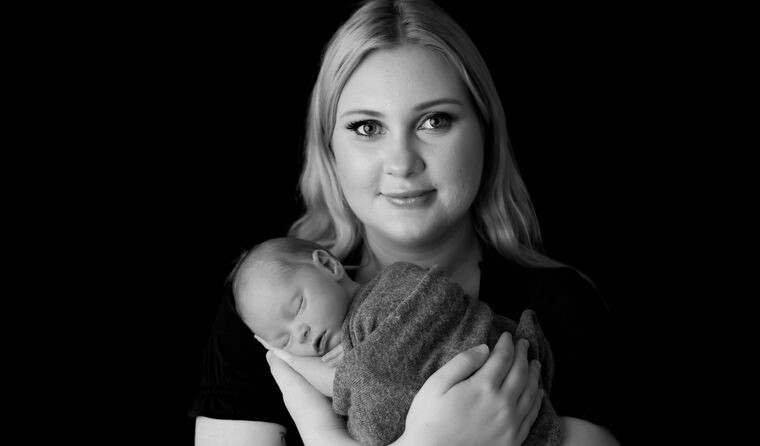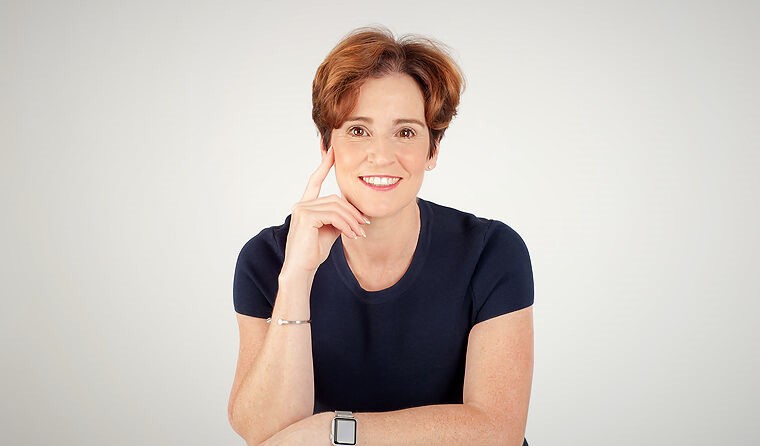News
Why GPs need to be mindful of ‘terrifying’ postpartum psychosis
newsGP speaks to a young mother who underwent a harrowing experience that could have been avoided, had someone made her aware of the condition.
 Postpartum psychosis affects around one in 1000 women.
Postpartum psychosis affects around one in 1000 women.
Clary Garrett was terrified.
The 22-year-old had already experienced a traumatic start to motherhood, after her membranes spontaneously ruptured at 29 weeks’ gestation and she was admitted to hospital to prevent premature labour.
At 36 weeks, Clary’s baby’s heart stopped and she was rushed off for a category one emergency C-section. Then, after birth, her baby boy was admitted to the neonatal intensive care unit (NICU) for six weeks, during which time his heart stopped again.
The first few weeks of motherhood were then a blur for Clary, as she pumped breast milk every three hours overnight and spent long days with her son in the NICU, worrying about his health.
When her baby was finally discharged home, Clary’s mental health plummeted and she began hearing voices.
‘I had people just screaming at me constantly; telling me I was a bad mother, that bringing a baby into the world at that time was terrible,’ she told newsGP.
‘It’s so hard to put into words, but basically I was abused constantly [by the voices].’
Clary also became paranoid, and over a period of around a month slowly felt herself losing grip on reality.
‘I was thinking people were breaking into the house,’ she said. ‘I kept focusing on my son’s socks, thinking that people were grabbing his socks and hiding them from me.
‘I was an absolute wreck. It was terrifying. Absolutely terrifying.’
Throughout her pregnancy, Clary – who has a past history of depression and anxiety – was warned by her doctor and midwives about the risk of developing postnatal mental health issues. But they had only mentioned postnatal depression and anxiety; no one had talked about the possibility of postpartum psychosis.
‘Nobody ever warns you that you could end up hearing voices and seeing things that aren’t there,’ Clary said.
‘There’s nothing about psychosis. It never came up in any of my appointments, never with my midwives or anything.’
Soon after arriving home with her baby, Clary told her healthcare team she was worried about her mental health but felt brushed off by their response.
‘[They said], “Oh, you’re a new mother, this is what happens when you have a baby. You’ve had a really rough birth, you’ve had birth trauma”,’ she said.
They did ask whether she might harm herself or her baby. At that point Clary truthfully said no.
But two weeks later, it was a different story.
‘I just had this terrible thought,’ she said.
‘I was about to pick up the pillow and I was about to smother [my baby] and then think about killing myself because I just think I’ve done the wrong thing bringing him into this world.
‘That’s what the voices were telling me.’

Clary Garrett experienced postpartum psychosis after the birth of her first baby. (Image: Supplied)
Dr Nicole Highet, founder and executive director of the Centre of Perinatal Excellence (COPE), told newsGP Clary’s story is far from unique, with postpartum psychosis affecting one in 1000 women.
‘Given the severity of the condition, and how critical it is to get onto it quickly, I see it as something all GPs need to be mindful of,’ Dr Highet said.
She says the first sign of postpartum psychosis is usually a change in a woman’s behaviour, and that it may begin with mania symptoms.
‘This is where GPs are ideally placed, because often they do know the person’s usual behaviour,’ Dr Highet said.
‘So someone with lots of energy, who’s feeling really strong and powerful, who doesn’t need to sleep, is talking very quickly, has unrealistic plans, impulsive behaviours; all those [are] signs of mania.’
They may also have hallucinations and delusions, while symptoms of marked depression may develop, such as poor energy, suicidal ideation or a desire to self-harm.
Dr Highet says it is important to know a person’s mental health background as postpartum psychosis is more common in people with a history of bipolar disorder, and those who have had a previous episode of postpartum psychosis.
But while GPs are ideally placed to identify postpartum psychosis, clinicians also play a vital role in informing patients about postpartum psychosis in the first place.
Clary wants healthcare professionals to inform pregnant women about the risks, along with the warning signs to look out for, as she would likely have sought help earlier if she had known the condition existed.
‘They do need to have these conversations with mothers because everyone I spoke to [about my experience] was like, “Oh my god, that’s even a thing?”,’ she said.
‘People who’ve had two or three kids were like, “I’ve never heard of that. I didn’t realise that could happen”.
‘If I knew what I was dealing with, that would have made the biggest difference.’
Aside from the fear of stigma, Clary said at the time she was also worried about other potential ramifications should she confide in someone else about her experience.
‘I was so terrified of what was going on. I was also terrified to reach out and ask for help because I didn’t want people to think I was crazy or a bad mum,’ she said.
‘I had a lot of fear that by reaching out and asking for help that child protection was going to come and take my baby off me.’
Dr Highet says such concerns are common among women with postpartum psychosis, and that concern is heightened in certain populations, such as in Aboriginal and Torres Strait Islander women, considering the history of stolen generations. Fear of judgement may also prevent women from seeking help.
‘People are worried about how they’ll be judged,’ she said.
‘They’re trying to prove to themselves that they’re great mothers, so there’s often a denial or reluctance to acknowledge symptoms until they become overwhelming.
‘And then there is always that fear of what if I do disclose to my family or friends, what will they think of me? If I disclose to a health professional might they think I’m incompetent as a mother or a risk to my baby?
‘So there are lots of barriers which make it hard.’

Dr Nicole Highet says GPs are ideally placed to identify patients with postpartum psychosis and ensure they receive timely help.
Clary agrees, and says this is why she feels the onus should be on healthcare professionals to ask about a new mother’s mental health at every appointment during her first year of motherhood.
‘I think it needs to be asked every time, because it can spiral out of control just so quickly,’ she said.
Dr Highet says that view is in line with current recommendations.
‘That’s actually a recommendation of the National Clinical Practice Guidelines, that you enquire about the woman’s emotional and mental health at every antenatal and postnatal visit,’ she said.
‘Furthermore, all expectant and new mothers are to have a psychosocial assessment undertaken, with the guidelines recommending the use of the Antenatal/Postnatal Risk Questionnaire.
‘This assessment has a focus on mental health history, which would reveal pre-existing mental health problems and ultimately the heightened risk of relapse in the perinatal period.’
And yet, Clary says she was only asked about her mental health in her early days of motherhood.
‘I’d already said I’m not going to hurt my baby, so they didn’t ask again,’ she said.
If a patient is experiencing symptoms that may fit with postpartum psychosis, Dr Highet says the key is to act quickly by ensuring the mother receives the appropriate mental health help she requires in a safe environment.
After almost a month in a mother-baby unit, Clary was discharged home. Her baby is now seven months old and, mentally, she is in a completely different place.
She remains incredibly grateful to her mother for helping her when she was unwell, and for being placed in a mother-baby unit until she felt like herself again.
‘I say it all the time: it saved [mine] and my son’s lives,’ Clary said.
‘We wouldn’t be here without it.’
Postpartum psychosis is discussed in the Ready to COPE guide for late pregnancy, a free guide expectant parents can receive via email in the lead-up to their baby’s birth.
Log in below to join the conversation.
mental health perinatal care postpartum depression postpartum psychosis women's health
newsGP weekly poll
Which of the following areas are you more likely to discuss during a routine consultation?